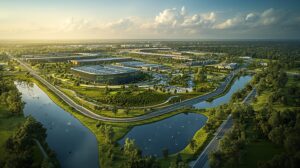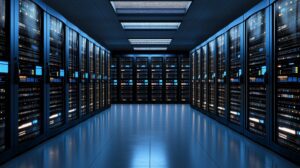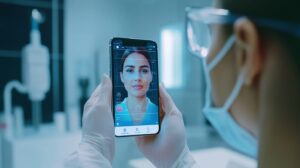
The Ultimate Hack for Better Teamwork: AI and Psychometrics
An interview with Juan Betancourt, CEO at Humantelligence
Q: Can you tell us about Humantelligence? What services do you offer, and who are your clients?
Humantelligence is a Future of Work SaaS company that uses AI and psychometrics to improve leadership, email communication, meeting effectiveness, and team collaboration. It’s an AI-driven plug-in called Smarter Collaboration that surfaces work style and behavioral insights across distributed workforces using Microsoft Teams, Outlook, Gmail, Zoom, Slack, and Webex. This allows people working in and across teams to collaborate better.
Think of it like Grammarly, but instead of grammar, it provides tips on understanding other people and how best to work together, either in their workflows or during meetings when they need the information most.
Our tool is designed to help companies and employees. We fast-track belonging for new hires, increase human connection and emotional intelligence for leaders and employees, and help managers build teams based on inclusive communication. The goal is to make every interaction between employees valuable. When individuals feel seen, heard, and valued, they become more deeply engaged, and performance increases—it’s a win-win for everyone.
Q: What inspired you to found Humantelligence?
The tool was born out of a need for deeper human connection as workforces have become more distributed than ever—partly as a result of the pandemic. With remote and hybrid teams, human connections among team members have become harder to forge. Add in friction over email, where misunderstandings and misinterpretations abound, along with generational differences within teams, and there’s a serious impact on a company’s culture, employee engagement and retention, and bottom line.
Imagine writing an email. Humantelligence can see who you’re emailing and give you tips on how to most effectively communicate with them, based on their personality. The system will even rewrite the email copy for you. If you’re setting up a meeting, Humantelligence will give you suggestions on how to structure the meeting for optimal outcomes. The system works in real-time during Microsoft Teams or Zoom meetings, giving users a better sense of how to engage each meeting participant. It’s changing the way people collaborate for the better.
Here’s a short, helpful video that can help you visualize what Humantelligence does.
Q: With your extensive experience in the jobs and career space, how has the career landscape evolved? What do you think we should expect in the next 5 to 10 years?
There have been a few transformational changes in the jobs and career space that are affecting or will affect every adult in the workforce in the coming years.
The two main changes are driven by technology and AI for finding jobs, sourcing and screening candidates, as well as by the impact of Covid on how people want to work—where, when, and how, in terms of remote, hybrid, or in-office settings.
Some of the impact:
- At least 60% of candidates want to work in a remote or hybrid fashion, making it easier to apply not just to the 5 relevant jobs in your city but to 5,000 jobs across the country. This leads to recruiters and companies getting bombarded by applicants on job boards like never before.
- The power balance between companies and candidates has become more equal.
- Some companies will move back to in-office work, while others will remain flexible. The general job market and the employees within it will align themselves with companies that match their preferred working style—remote, hybrid, or in-office. This transformation is still occurring and should stabilize by 2027.
- Several job boards have emerged to help candidates find jobs faster and to help companies find more candidates more quickly. AI is now making those job boards and the matching process through Applicant Tracking Systems (ATS) much more effective.
- The job search, although theoretically easier with the new AI and technology tools available, has become harder for all key stakeholders—candidates and employers alike. More opportunity and more power in the hands of candidates offset the gains in filtering and using AI to find the perfect fit. In the long term, this will change, and these tools will create a win-win situation for frustrated recruiters and candidates, but today, they are not yet feeling the benefits.
Careers at a company will evolve into on-demand, gig economy-like jobs that are outsourced for specific periods of time. The model of working part-time on projects is growing rapidly. The traditional model of being a full-time W2 employee for many years at one company will become less and less attractive to candidates, who will be taking their career development into their own hands. Flexible, technology-driven HR systems will allow this on-demand gig economy to flourish.









